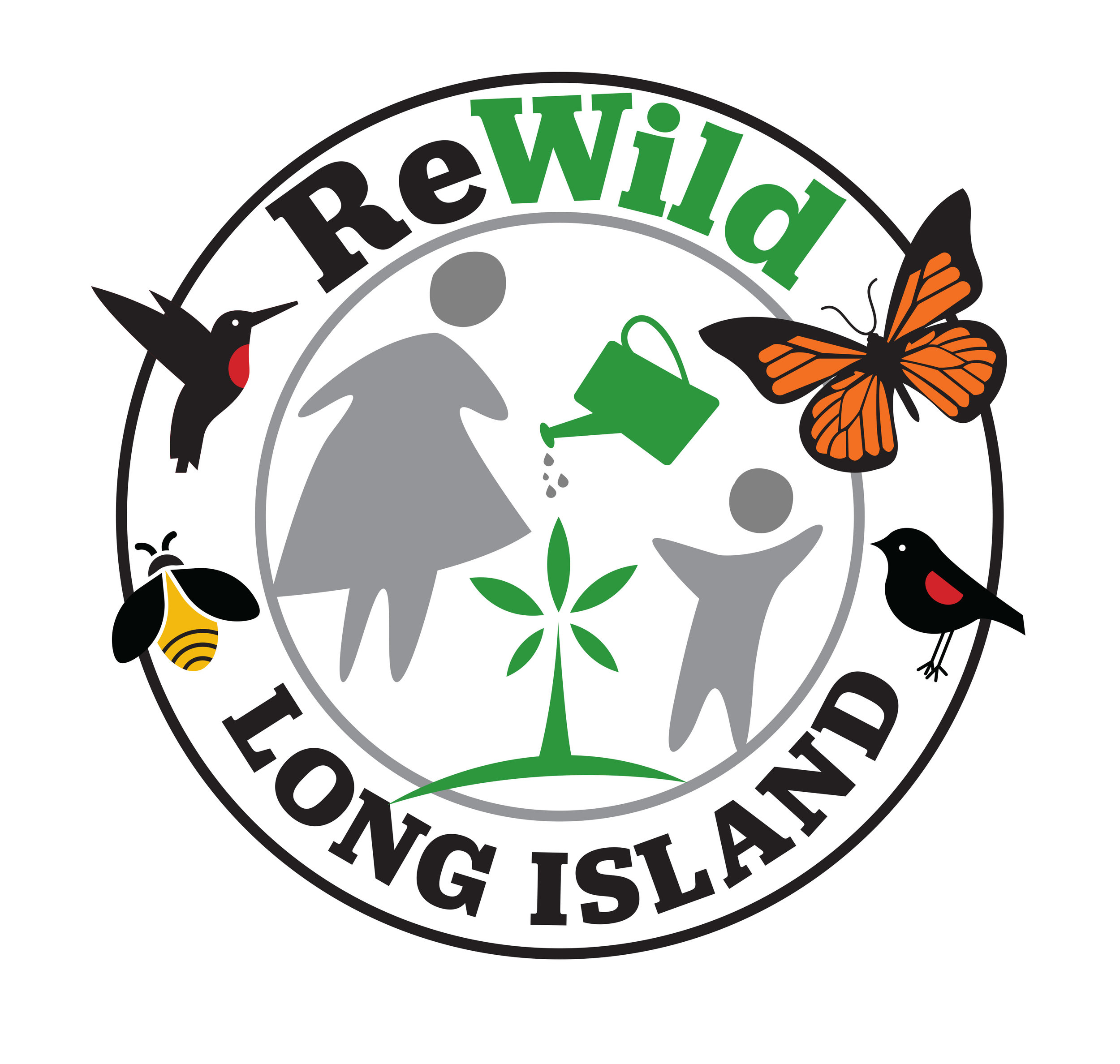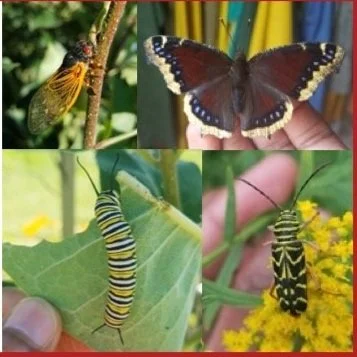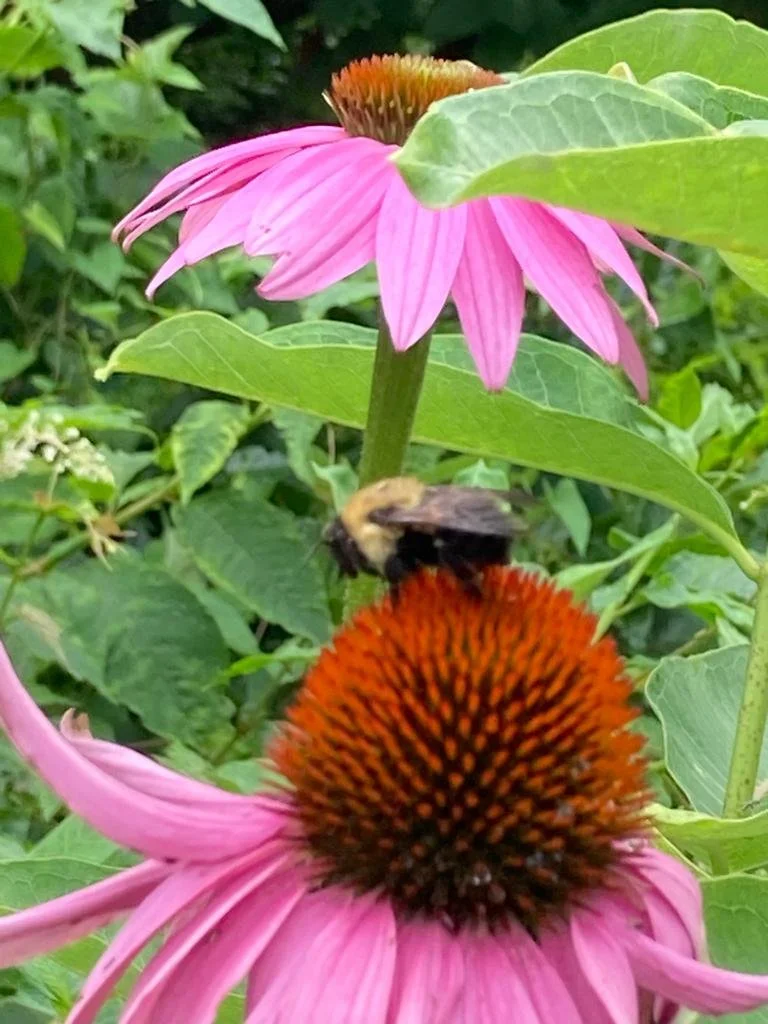Volunteers make rewilding happen. We can’t grow more rewilded spaces on Long Island without attracting new hands and hearts to our movement. With this in view, ReWild is announcing a volunteer recognition policy for 2024 which includes discounts on plant sales and exclusive member-only plants access at the Fall 2024 and Spring 2025 Plant Sales for volunteers who contribute over 10 hours over the 2024 season.
Read MoreLearn the key role of kelp in our environment & how you can participate in local kelp programs.
Read MoreStart your native seeds indoors with this step-by-step guide, which includes a list of the materials you’ll need.
Read MoreGet an inexpensive jump start on the growing season.
Read MoreTo save money and make your home healthier and more comfortable for your family, watch this webinar highlighting the steps to make your home and transportation more energy-efficient.
Read MoreUpdate: applications are now closed. ReWild Long Island invites applications from community groups interested in creating and maintaining sustainable public garden spaces. We offer a short and painless process to apply for and gain our support. Our program is targeted at enabling small groups of motivated people to gain access to skills, design, education, plants, regular on-site maintenance advice and professional consultations needed to make a rewilded garden project successful. Whether you represent a small garden club, school, faith community such as a church, community club, or a well-established non-profit, you are welcome to apply.
Read MoreReWild Long Island seeks a full-time Gardens Project Manager. This full-time position combines a number of synergistic roles, including garden designer, consultant and installer as well as educator and administrator. It is a hybrid position with outdoor hands-on group work, as well as remote work administering and co-ordinating programs. This full-time position may also be shared between two part-time employees, one taking the garden focused role, and the other more focused on administration.
Read MoreThis autumn, ReWilders across Long Island celebrated leaves. Join them for a walk in their gardens through the rustling leaves…
Read MoreThe growing season is coming to an end. How to shut the gardens down for winter - what to do and what not to do? Here is a recording of a talk by expert Maggie Muzante as she goes over the steps needed to prepare your garden for the winter along with what you can do to promote a better, more resilient garden for years to come.
Read MoreInsects are often categorized as "good" or "bad" based on their interactions with humans, but is this thinking useful? Many of the insects around us are both beloved and feared, but they play an essential part in our ecosystem as pollinators, predators, recyclers, and so much more. Jared Dyer, Entomologist from Cornell Cooperation Extension of Suffolk County, delves into the multifaceted role that insects play in both nature and human society, and how we can live with them—because we can’t live without them.
Read MoreLearn how oysters help restore our waters, provide habitat, and support marine biodiversity. Martha Braun of the Coalition to Save Hempstead Harbor shares how the Community Oyster Gardening Program is making a positive impact – and how you can, too.
Read MoreAbout six years ago Valerie started a pollinator garden on a small strip of partially manicured land in front of her canal side tiny co-op. As with many that have planted natives, Val is bewitched by the colors, shapes and activity of an ecosystem that spings magically to life.
“Squeezing myself between pleats I snuggle within these petals of safety until the glare of daylight smooths me like a hot iron and I drift to the winds of my intuition floating on the thermal of a rare nothing to do day until I land on a mural I have yet to paint. “
Read on to discover her closely observed new world …
Read MoreWe live in a miraculous world. A small seed will sprout and become a plant or a great tree. However, seeds have evolved to require specific conditions — temperature, moisture, season, etc — to germinate.
This blog post is about home germination of native plant seeds so you can propagate and grow your own native garden. Not only does this cost less, done right, it can be educational and fun!
The author of this blog, Catherine Halpern, fell in love with the process of germinating seeds. In this post, she breaks it down into easy steps for the winter!
Read MoreA garden is a place of solace and connection with Nature. It is also a place for exploration and education. Three lifelong gardeners and recent Master Gardener SCCE graduates set out to plant and maintain a native garden in Huntington.
In this blog piece, Master Gardeners Alexandra, Carolyn, and Hope discuss how they were inspired to start and finish the Kubeka Garden project with a little help from ReWild Long Island.
Read MoreIn May, ReWild Long Island celebrated “Mindful May,” a month in which gardeners reconnect with their gardens and with the rest of the natural world. We asked gardeners to send us their observations, reflections, and photos and to tell us about what they were doing to be mindful in their yards. The responses were beyond our expectations, not only in the number of submissions we received, but also in the joy, love, and beauty that these writers expressed. Some folks stopped mowing for the month, while others changed when or where they mowed. Some folks planted native plants or ripped out invasives. Others took time to observe the beauty of their gardens and experience the joy of seeing the insects, birds, and mammals who visited their gardens. These gardeners not only reconnected to the beauty of their yards but also enhanced and benefited the natural world in which we all live. Here are some excerpts from the submissions.
Perry’s backyard garden has room for vegetables, ornamental plants and now a variety of native plants that Perry selected in a site that he designed. He enjoys seeing the changes and learning what works, what doesn’t and how the garden provides ecological service to local pollinators. It’s a working progress.
New and experienced ReWilders ask about resources around sustainable landscaping. Rather than try to recreate well-known national resources like wildflower.org, we have chosen to compile local answers relevant to Long Island. Sustainable landscaping is relatively new, and there is much to experiment and learn. Your land, your soil, your sun and water situation may dictate your success. In that light, we love to feature the experience of other rewilders on Long Island as the basis of what may (and may not) work for you.
If you have a story or experience to share, please send it to us. If you spot an error, please let us know. This faq is only as good as the community that informs us!
Read MoreThis is a recording of a presentation by horticultural veteran and no-till expert Brian Zimmerman. Brian eloquently describes his own evolution and realization around the very many no-till techniques that add fertility and reduce weed pressure in gardens. This talk also features discussion of different cover crops, and provides a detailed list of downloadable resources on cover-cropping for Long Island.
The zoom presentation was hosted by ReWild Long Island on June 7th.
Read MoreKnow Your Long Island Mammals with Seatuck Biologist Mike Bottini
Join wildlife biologist Mike Bottini from Seatuck Environmental Association as he answers these questions and more.
Which mammals are native to Long Island?
How have their populations changed over time?
What’s the future looking like for mammals?
And learn how you can make their futures brighter by joining the Mammal Survey https://seatuck.org/long-island-mammal-survey/
Read MorePatty Collins is a retired cardiac anesthesiologist. She moved to East Hampton in January 2020 and started learning about native plants and pollinators. She stays active by volunteering for various organizations such as ReWild Long Island, Change Hampton, and Suffolk Alliance for Pollinators.
She reflects on her gardening journey from an ornamental garden in Illinois to learning about native plants and how individuals can help through small actions.
Read More

















![Easy No-Till Vegetable Gardens with Horticulturist & Landscaper Brian Zimmerman [Video]](https://images.squarespace-cdn.com/content/v1/5d26169d479c6d0001c989aa/1686602940352-OFA04CIFXORLLMIK4924/230607_picture+from+BrianZimmerman.jpg)
![Know Your Long Island Mammals with Seatuck Biologist Mike Bottini [Video]](https://images.squarespace-cdn.com/content/v1/5d26169d479c6d0001c989aa/1685412366600-1U3KH0SFC4K54J9IYVLP/230516_MikeBottini_LongIslandMammals_YouTubeThumbnail.png)
